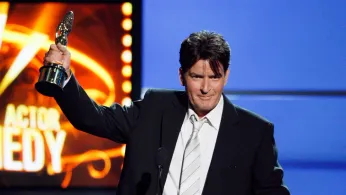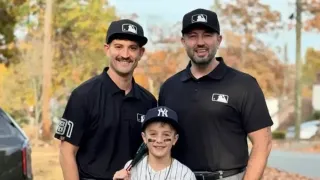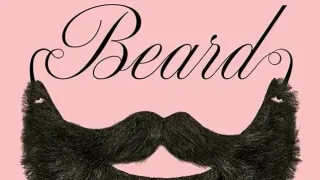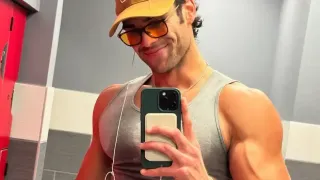
Sep 6
Charlie Sheen Candidly Discusses Encounters with Men in Forthcoming Memoir and Netflix Documentary
READ TIME: 2 MIN.
Charlie Sheen, internationally recognized for his roles in "Two and a Half Men" and "Platoon," is stepping into the spotlight with newfound candor about his personal life. In a series of recent interviews and in his forthcoming memoir, "The Book of Sheen," as well as the Netflix documentary "aka Charlie Sheen," Sheen recounts his experiences with same-sex encounters—stories he previously kept private due to stigma, addiction, and fear of public scrutiny .
“Sheen, now 60, describes the process of sharing these personal details as “liberating.” In interviews with People magazine and in the documentary, he uses humor and humility to frame his journey: “I’m not going to run from my past, or let it own me. So what?” he states, underscoring a sense of personal reclamation . He continues, “It’s f–king liberating… to just talk about stuff. It’s like a train didn’t come through the side of the restaurant. A f–king piano didn’t fall out of the sky. No one ran into the room and shot me” .
Sheen’s willingness to openly discuss his history—particularly within the context of substance use and complicated relationships—breaks with Hollywood’s legacy of silence around male same-sex encounters. He reflects on his experimentation with men as beginning during periods of crack cocaine use, noting, “That’s what started it... That’s where it was born, or sparked” .
A recurring theme throughout Sheen’s revelations is the suffocating impact of shame. “When you got a lot of shame about a lot of stuff, shame, shame is suffocating,” Sheen narrates in the documentary trailer . By publicly acknowledging his same-sex experiences, Sheen says he has been able to move past self-judgment and societal expectations: “Some of it was weird. A lot of it was f–king fun, and life goes on” .
This openness aligns with a broader movement within and outside of LGBTQ+ circles to destigmatize fluid sexualities and confront the intersections of identity, addiction, and mental health. Sheen’s narrative resonates in an era where more public figures are embracing honesty about their journeys, helping to foster understanding and acceptance .
Queer advocates and media commentators have noted that Sheen’s story, while unique in its details, echoes the experiences of many who have struggled with secrecy and shame. The fact that a figure of Sheen’s notoriety is able to speak candidly about same-sex relationships—without framing them as mistakes or solely as byproducts of addiction—can provide affirmation for others questioning their own histories .
Sheen’s approach also emphasizes the importance of self-acceptance and the power of narrative control. By saying, “So what? Life goes on,” Sheen reframes his experiences as simply part of his broader human journey .
"The Book of Sheen," to be released on September 9, and the Netflix documentary "aka Charlie Sheen," debuting on September 10, promise to expand on these themes with greater depth . The documentary features interviews with significant figures from Sheen’s life, including ex-wife Denise Richards and former co-star Jon Cryer, providing additional context to Sheen’s experiences .
Both works are poised to offer not just a retrospective of Sheen’s career but also a critical examination of the pressures and challenges faced by LGBTQ+ individuals—especially those in the public eye—amid Hollywood’s often rigid expectations.






